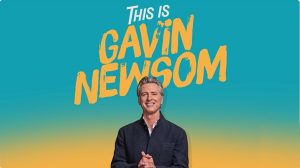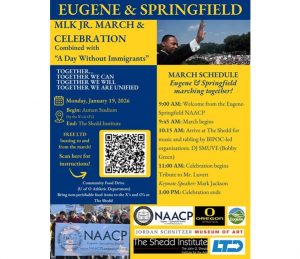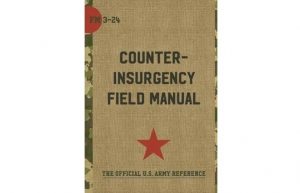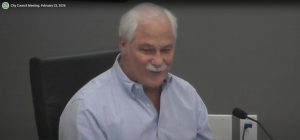Rev. Dr. Barber discusses the June 29 Moral March on Washington
3 min read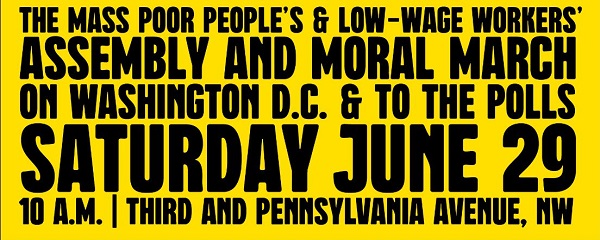
DJ Suss D: The U.S. government war economy and sponsorship of corporations has displaced workers to the point of creating a huge bloc of potential voters from all walks of life. The Poor People’s Campaign intends to mobilize these groups to get the world back on a social justice track.
[00:00:16] On a recent episode of the Ralph Nader Hour, co-chair of the Poor People’s Campaign, Rev. Dr. William J. Barber, spoke on their planned June 29, 2024 march and assembly on Washington D.C.
[00:00:29] Rev. Dr. William J. Barber (Poor People’s Campaign, co-chair): Well, Ralph, we’re talking about 135 million poor and low wealth people in this country today. We’re talking about over 40% of our adults, well, 50% of our children, and we’re talking about 58% of black people, which is 26 million people, and over 30% of white people, which is 66 million, 58% of Latinos and Natives.
[00:00:48] And we are now talking about where poor and low-wage people make up 30% of the electorate and almost 42% to 43% in so-called ‘battleground states’ where the margin of victory for president was less than 3%. It’s time to center the needs and the demands of these persons in our politics. Too often, we have denied them.
[00:01:09] We’ve had debate after debate and not even a word mentioned. In fact, candidates are not even asked, Democrat or Republican, what will you do to address the unnecessary reality of poverty, the abolishable reality of poverty, and the fact that 800 people are dying a day from poverty, 295,000 people a year.
[00:01:27] So on June 29, Saturday, 10 o’clock on Pennsylvania and Third, we are assembling a mass poor people’s low wage workers Assembly and Moral March on Washington and to the polls, which is a part of an effort we launched on March the second to touch 15 million poor low-wage work-infrequent voters who, when they vote, they tend to vote for more progressive ideas, but the number one reason they don’t vote, Ralph, is they say no one talks to them.
[00:01:56] And what the agenda that’s uniting our 30 anchor groups that now represent over 60 million people from labor to the National Council of Churches are these:
[00:02:05] Number one, we’re saying to politicians: You need to answer and be very clear. Do you have a plan to abolish poverty as the fourth leading cause of death in America?
[00:02:14] Are you going to push for and then pass a living minimum wage of at least $15, more so like $17 an hour indexed with inflation? Are you going to be for full and expanded voting rights and ensure that the Voting Act is restored and voting rights are expanded? Are you against no more voter suppression? Are you for guaranteed worker rights and labor rights?
[00:02:36] Are you for health care for all? So that a person’s health care is not determined by their job, but their humanity. Are you for affordable, adequate housing with the millions of people who are on the brink of homelessness and are homeless? Are you for strong social welfare and safety net programs? Are you going to push legislation and policies that would put an end to gun violence and profit and proliferation of guns?
[00:02:58] Are you for fully protected women’s rights, environmental justice that secures clean air, clean land, clean water? Are you for justice for all Indigenous nations? Are you for fully funded public education? Are you for just immigration laws? Are you for addressing militarism and the war economy? And are you for standing for peace and not war, calling for an immediate ceasefire, Israel and Gaza, that allows immediate humanitarian release for a pause to release all of the hostages for peace and justice to be pursued at an end, not only there, but to genocide around the world, like in the Congo and Somalia, and are you fighting for an end to hate division and extremist political agenda?
[00:03:44] It is this agenda that’s uniting poor and low-wealth people from the Delta to Detroit, from Appalachia to Alabama, from the Tenderloin in San Francisco to upstate New York down to Florida. This is the agenda that is coming up from the people and what they are saying is, this is what they want to hear politicians talk about and how they determine who they’re going to vote for.
[00:04:11] DJ Suss D: The Ralph Nader Hour can be heard on KEPW on Mondays at 9 a.m. For KEPW News, I’m DJ Suss D.

